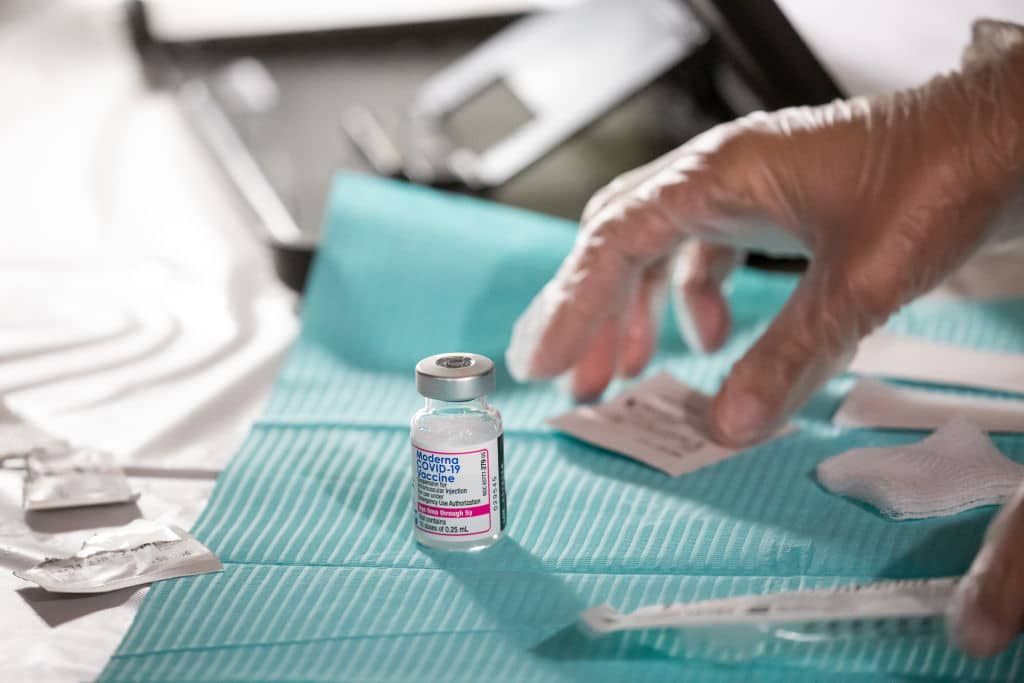TOPLINE
Researchers have potentially linked an antiviral protein produced by the body during infection as the cause of long Covid, according to a new study, and they’re optimistic the next step is making medications to treat the disease.
KEY FACTS
Researchers followed patients with long Covid for 2.5 years to determine why some recovered from their symptoms and others didn’t, according to the study published Wednesday in Science Advances.
Long Covid (or post-Covid) symptoms include shortness of breath, loss of smell or taste, brain fog or chest pain following recovery from a Covid infection that can last for weeks—or in some cases, for years—according to the Centers for Disease Control and Prevention.
When infected with the coronavirus, people produce an inflammatory protein called interferon gamma (or IFN-y), which is part of the body’s natural response to fight off infection.
The production of the protein typically stops once infection goes away, but researchers discovered participants with ongoing Covid symptoms had high levels of IFN-y for up to 31 months after initial infection, which the researchers believe may be the cause of long Covid.
Over 60% of patients experienced relief from at least some of their symptoms during the study period, and participants who were vaccinated after infection saw significant decreases in their long Covid symptoms and IFN-y production, suggesting vaccination “improved” long Covid symptoms, according to the study.
Current long Covid treatment only targets symptom alleviation and not the underlying disease, but now that a potential cause has been identified, there’s “hope that this could help to pave the way” for creating medication to specifically target long Covid, and “give some patients a firm diagnosis,” Benjamin Krishna, the study’s co-author and an investigator at Cambridge University, said in a statement.
CRUCIAL QUOTE
“The number of people with long Covid is gradually falling, and vaccination seems to be playing a significant role in that,” Krishna said. “But new cases are still cropping up, and then there is the big question of what happens when the next coronavirus pandemic comes along. Understanding what causes long Covid now could give us a crucial head start.”
BIG NUMBER
65 million. That’s how many people worldwide suffer from long Covid, according to a 2023 study. The CDC estimated around 6% of American adults in June 2023 experienced long Covid at some point in their lives.
WHAT TO WATCH FOR
The study researchers believe because there are several symptoms of long Covid that can look very different from each other, more research is needed in order to create subgroups of the disease. It’s “unlikely” all symptoms are caused by the same thing since some patients are able to recover while others aren’t, so future studies into why should be conducted, according to the researchers.
KEY BACKGROUND
Several risk factors play into who’s more susceptible to long Covid, according to the National Institutes of Health: underlying health conditions like obesity and diabetes, going unvaccinated, experiencing severe Covid infection or hospitalization, older age and being a woman are all risk factors. Long Covid can affect several organs and body systems like the heart, lungs, kidney, reproductive system and brain and also trigger other health conditions like kidney disease, autoimmune disorders or diabetes. Other experts have attempted to identify the cause of long Covid. Some studies have hypothesized tiny clots in the cells that persist for a long time may be the cause of some symptoms. The microclots may cause an inflammatory response, which causes exhaustion and fatigue, two of the most common long Covid symptoms. The Science Advances researchers believe their new findings suggest microclotting can’t be the only or most significant cause, though they don’t rule it out. The lowering of certain anti-inflammatory gut microbiomes during and after Covid—which causes an inflammatory response—may also trigger long Covid, according to a 2022 study. Another theory is that the coronavirus itself—not the body’s response to it—causes long Covid by damaging or altering cells, leading to lasting symptoms, according to a separate Science Advances paper.
